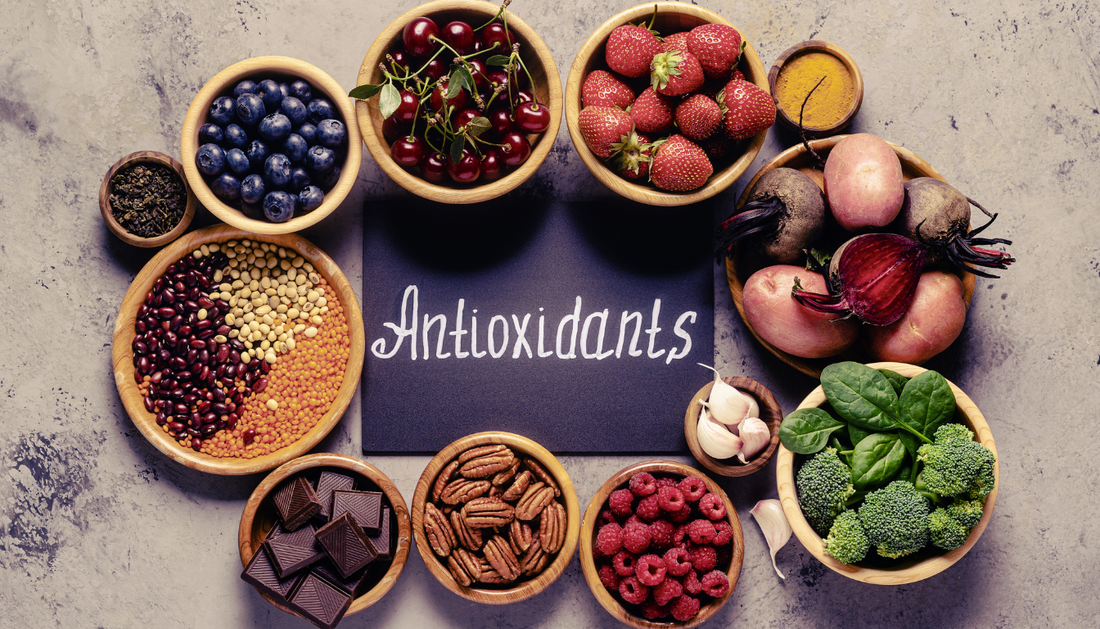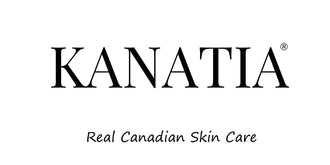
How Do Antioxidants Protect Your Skin from Premature Aging?
Antioxidants are key in fighting skin aging. They neutralize free radicals caused by UV rays and pollution. Free radicals harm skin cells, leading to wrinkles and discoloration.
Antioxidants keep skin cells healthy. This slows down aging and keeps your skin looking young and bright.
Antioxidants are vital in protecting your skin from the environment. They also help your skin repair itself. Adding them to your skincare routine can greatly improve your skin's health and look.
Learning how antioxidants work helps you protect your skin. This way, you can keep your skin looking young and vibrant.

Understanding Oxidative Stress and Free Radicals
Keeping your skin healthy today is more than just a skincare routine. It's also about knowing about oxidative stress and free radicals. This knowledge is key to protecting your skin.
What is Oxidative Stress?
Oxidative stress happens when free radicals and antioxidants are out of balance in your body. This imbalance causes damage to cells and tissues. It affects not just your internal organs but also your skin.
Your body naturally makes free radicals when it works. But too many can harm your skin.
How Free Radicals Damage Your Skin
Free radicals are unstable molecules that attack healthy skin cells. This leads to oxidative stress, speeding up aging. It causes wrinkles, loss of skin elasticity, and dullness.
Using skincare products with antioxidants can help fight free radicals. This protects your skin.

Environmental Contributors to Oxidative Stress
Environmental damage plays a big role in oxidative stress. Pollution, UV rays from the sun, and lifestyle choices like smoking and drinking too much alcohol create free radicals. Reducing your exposure to these and using protective skincare products can help.
Key Antioxidants that Help Prevent Skin Aging
Keeping your skin healthy means knowing about key antioxidants. These include Vitamin C, Vitamin E, Selenium, and Zinc. They work together to protect and renew your skin. Let's look at how these antioxidants help keep your skin young and healthy.
Vitamin C: The Skin Savior
Vitamin C is key for making collagen. This keeps your skin elastic and reduces wrinkles. It also fights off free radicals, keeping your skin in top shape.

Vitamin E: The Shield Against UV Damage
Vitamin E protects your skin from UV damage. It absorbs UV light, stopping damage from the sun. This helps prevent early aging and keeps your skin healthy.
Selenium and Zinc: Essential Mineral Pair
Selenium and Zinc make your skin strong against environmental harm. Selenium keeps your skin elastic, while Zinc helps fix damaged skin. Together, they keep your skin strong and less likely to age.
Natural Antioxidants in Food
Fruits and vegetables are full of antioxidants that help your skin. Foods like citrus fruits, berries, and leafy greens are great for your skin. Eating a diet rich in these foods helps protect your skin and keeps it looking young.
| Antioxidant | Source | Benefits |
|---|---|---|
| Vitamin C | Oranges, strawberries, bell peppers | Boosts collagen production, anti-wrinkle |
| Vitamin E | Almonds, spinach, sunflower seeds | Protects against UV damage, free radical neutralizer |
| Selenium | Brazil nuts, mushrooms, eggs | Maintains skin elasticity, environmental protectant |
| Zinc | Oysters, chickpeas, pumpkin seeds | Supports immune response, repairs skin tissue |
Antioxidants in Skincare: Benefits and Applications
Adding antioxidants to your skincare routine has many benefits. It helps protect against early aging, improves skin texture, and brightens your complexion. Choose products that include antioxidants to enhance your daily skincare.
Incorporating Antioxidants into Your Routine
Using skincare products with antioxidants can greatly improve your skin. Start with a serum or moisturizer that has Vitamin C or E. These vitamins fight free radicals on your skin, reducing aging signs.
Topical vs. Oral Antioxidants
Topical and oral antioxidants both fight oxidative stress. Topical ones, like creams and serums, work directly on your skin. Oral ones, found in supplements and foods, help your body's defense.
How to Choose the Right Antioxidant Product
Choosing the right skincare products depends on your skin type and concerns. Look for products with Vitamin C, Vitamin E, or coenzyme Q10. Make sure the product fits your skin type for the best results.
Potential Drawbacks and Risks
While antioxidants are beneficial, there are risks. Too much or wrong use can cause skin sensitivity or irritation. Always test a new product on a small area before using it fully.
In summary, using both topical and oral antioxidants wisely is key. Choose carefully and apply mindfully to enjoy benefits and avoid risks.
Mapping Out a Healthy, Antioxidant-Rich Diet
Eating foods rich in antioxidants can make your skin healthier. A diet full of these foods helps your body stay young and glowing. It's all about eating well for your skin's sake.
Some top foods for antioxidants are berries, nuts, and leafy greens. They fight off damage that can make you look older. This keeps your skin looking fresh and young.
- Breakfast: Start with a smoothie of berries, spinach, and nuts for a boost of antioxidants.
- Lunch: Enjoy a salad with greens, tomatoes, avocados, and seeds for a skin-friendly meal.
- Dinner: Choose lean protein with steamed broccoli, kale, or other greens for a dinner full of antioxidants.
Eating a variety of these foods regularly will boost your diet and skin health. It's a simple way to keep your skin looking its best.
| Meal | Recommended Foods |
|---|---|
| Breakfast | Berries, spinach, nuts |
| Lunch | Mixed greens, tomatoes, avocados, seeds |
| Dinner | Lean protein, broccoli, kale |
Maple Syrup: The Natural Remedies for Youthful Skin
Maple syrup is not just sweet for your taste buds. It's also great for your skin. It's full of natural antioxidants that fight inflammation, which can make you look older. Adding maple syrup to your skincare routine can make your skin look younger.
Studies show that maple syrup's antioxidants protect your skin cells. This means fewer fine lines and wrinkles. Using maple syrup in your skincare routine is a smart way to keep your skin looking young and glowing.
Scientific Evidence Supporting Antioxidant Use Against Premature Aging
Recent studies show that antioxidants fight premature aging well. They found that antioxidants reduce free radicals' harm. This is key to understanding why experts recommend them for skin care.
A study by the American Academy of Dermatology found Vitamin C and E protect skin from UV damage. They help reduce wrinkles and improve skin's elasticity. Another study in the Journal of Investigative Dermatology showed selenium and zinc make skin firmer and smoother.
Harvard Medical School researchers looked at natural antioxidants in food. They found that eating foods rich in antioxidants helps skin health. This shows the value of using both topical and dietary antioxidants.
When adding antioxidants to your routine, choose products backed by science. Using them regularly can greatly improve your skin's health and look. This is supported by a lot of research.
FAQ
What is Oxidative Stress?
Oxidative stress happens when free radicals outnumber antioxidants in your body. This imbalance damages cells and tissues.
How Do Free Radicals Damage Your Skin?
Free radicals harm skin cells, speeding up aging. This leads to wrinkles and loss of skin elasticity.
What Are the Environmental Contributors to Oxidative Stress?
Pollution, UV rays, and lifestyle choices like smoking and drinking too much alcohol create free radicals.
Why is Vitamin C Referred to as "The Skin Savior"?
Vitamin C boosts collagen and reduces wrinkles. It's key for keeping skin healthy.
How Does Vitamin E Shield the Skin Against UV Damage?
Vitamin E fights UV-induced free radicals. It protects the skin from sun damage.
How Do Selenium and Zinc Enhance Skin Resilience?
Selenium and zinc strengthen the skin. They help it resist environmental damage.
What Role Do Natural Antioxidants in Food Play in Skin Health?
Eating foods high in antioxidants helps your skin. It slows aging and keeps skin looking young.
How Can You Incorporate Antioxidants into Your Skincare Routine?
Use skincare with antioxidants like Vitamin C and E. It improves skin health and fights aging signs.
What is the Difference Between Topical and Oral Antioxidants?
Topical antioxidants fight free radicals on the skin's surface. Oral antioxidants boost your body's defense, benefiting your skin.
How to Choose the Right Antioxidant Product for Your Skin?
Choose products with Vitamin C and E. Consider your skin type and concerns when picking a product.
Are There Potencial Drawbacks and Risks to Using Antioxidants?
Too much or wrong use of antioxidants can make skin sensitive. Always test new products first.
What Foods Should Be Included in a Healthy, Antioxidant-Rich Diet?
Eat berries, nuts, and green veggies. They're full of antioxidants that nourish your skin and support health.
How Can Maple Syrup Benefit Your Skin?
Maple syrup has antioxidants that fight inflammation and prevent wrinkles. It's a natural way to keep skin young.
What Does Scientific Evidence Say About Antioxidant Use in Skincare?
Research supports using antioxidants to slow aging. They neutralize free radicals, protect cells, and keep skin healthy.

